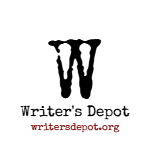
If there’s additional details (than required) gathered while working on a subject matter it is best to use only the essential variety and discard the rest
There are instances in life when the best possible advice comes from the most unlikeliest of sources. In my fledgling years as a writer I happened to meet a veteran author, and was surprised to find that he had read some of my narratives and liked them. Besides being grateful for his appreciation I asked him where I could improve.
While he complimented me for my style and attention to detail he also had a word of advice. “There’s too much of information in your writing. So much of information is detrimental. It can put off readers. Some can be easily done away with,” he said, in a very candid manner.
Following the conversation I went back to the archives, and glanced through some of my writings that had already been published. The idea was obviously to make an attempt to crosscheck the veracity of his observation. Having done so I had no hesitation in admitting that the veteran was right.
Writing is a continuous process of evolution and a writer should always leave a lot of room for improvement. Any feedback that helps in evolving should always be welcomed. I have since kept the veteran author’s advice in mind while writing. A few years have passed since and I can safely say that if there’s more information gathered while working on a particular topic or subject matter, I end up using the more essential variety, discarding the rest.
While this has become a habit over the years this attention to detail has also helped me in another way. In the process, and purely from a reader’s perspective, I have also understood as to why too much of information in a particular write up doesn’t quite serve the purpose. Forget the reader, it also doesn’t help a writer.
Here are six inferences drawn from such an understanding.
1. Delays the start
The more isn’t merrier in this case. Well, literally. As a writer looks for further information the start gets delayed to a considerable extent.
The quest for additional information is a time consuming process. The writer either delves deep and devotes more time to research, or is dependent on external sources, for additional details. In both the cases it becomes difficult for the writer to focus on writing per se. Securing that extra info is what weighs on a writer’s mind and as a result, the task at hand suffers.
Writing is more about focus than anything else. When a writer’s mind is preoccupied with the procurement of the information to expect a timely start and smooth progression tantamount to expecting a bit too much.
2. Puts doubt in the writer’s mind
Too much of information equates to confusion. Correction, it is actually self-invited confusion.
The writer may have envisaged a particular trajectory for his narrative, a certain plan of action before putting his thoughts into words. However, the more the information, the more the chances of the initial idea going for a toss.
Having too much matter at their disposal not only confuses but also puts doubt in the mind of the writers. In their attempt to include every piece of information available at their disposal they make a mess of the whole thing.
3. Original idea goes for a toss
Every write up begins with a basic idea. Thereafter, it is about building it up to something more profound and sensible. It is here that a writer’s decision-making ability becomes crucial.
How to go about developing the basic idea, what needs to be added (and edited) and where to draw the line…all these factors determine the eventual output. In such a scenario too much of information ensures a meandering of purpose.
There is definitely some information that is required to bolster the overall content. However, there’s also the human aspect involved more often than not. A writer may have a desire to include certain additional information, something he/she strongly feels about or wants to add just because of the effort required to obtain it.
It is this desperate desire that sends the original idea for a toss.
4. There’s information paralysis
There’s every chance of this over-dependence on additional information becoming a habit over a period of time. What starts off as a sometimes innocuous, sometimes petty desire to provide a bit more to the reader — and thereby make an instant impression, later becomes the main focus.
This information paralysis is a malaise that perennially affects a writer’s subconscious, ensuring the lack the confidence to start something new, unless of course there’s a truckload of information available.
In a worst case scenario it can be the starting point for writer’s block.
5. End product is unconvincing
When a writer deviates from his/her primary focus the quality of the offering takes a beating. The deviation from the basic idea results in a confused, haphazard and half-baked end product, and one that does not make for good reading.
A writer who is in self doubt and not convinced ends up adding a lot more information that required making the final copy equally unconvincing. The reader is left dissatisfied.
It’s also detrimental to a writer’s shelf life in the long run.
6. Another possible idea gets stifled
Gathering additional information is not always unnecessary. Knowing how to use them can actually help matters.
While some write-ups do not need any more than required, a smart writer can always come back to his database at a later stage, while working on another idea. The information that might seem trivial and unnecessary for a particular write-up can be integrated wonderfully well into another idea.
On the contrary by using additional information while working on one idea the prospect of an altogether new write up gets nullified, unless of course the writer has no apprehension in going overboard.
To sum it up…
A writer has to first and foremost look at executing an idea as it has been initially conceived, and not deviate from the main purpose. It is imperative to remember this basic principle. The focus has to be on working with this basic idea and making a somewhat logical, and overall pragmatic progression towards getting the desired result.
The cosmetic changes can happen at the editing table. All the redundant matter can, and should be done away with.
In the final analysis a perfect write up is about translating a good idea and working towards a well-charted narrative, adding as much information as is required and doing away with the unnecessary stuff.
Why Too Much of Information Does Not Help A Writer was originally published in The Writing Cooperative on Medium, where people are continuing the conversation by highlighting and responding to this story.
Read more: writingcooperative.com
